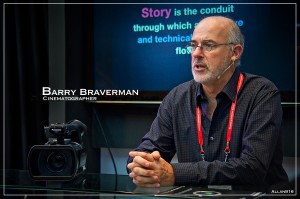 Failing Media Education in the West: What’s Wrong With This Picture
Failing Media Education in the West: What’s Wrong With This Picture
This week I’m in Singapore at Broadcast Asia where I’m presenting a series of mini camera workshops from the Panasonic booth on the expo floor. It is obvious to everyone that South Asia and Southeast Asia have emerged as the new epicenters of technology implementation and future growth. It is just as clear based on my professional work and recent workshops in Asia and Africa that the quality of media education in the United States is failing and that professional opportunities in general in the U.S. and Western Europe will continue to diminish in the next decade. It could be simply due to the current economic malaise in Western countries, but I believe it is due to something else, something more insidious.
About six months ago I was invited to conduct a workshop at a prestigious university outside of Paris. My invitation had to apparently clear a number of daunting obstacles including requisite permissions from the dueling teachers unions that are currently wreaking havoc in universities across the country. Ultimately my invitation was denied due to my insufficient qualifications, most notably my ongoing lack of a PhD. It’s bizarre that with thirty-five years of experience on high profile feature films and documentaries, three books, extensive teaching experience in camera training workshops around the world that a PhD from an insolated acadamic institution should rule the roost.
In America a near-comparable level of bullshit applies as academics and their allies conspire to deny their students the media skills they so desperately need. No such restrictions exist however for film and TV schools and universities across Asia.
Here the demand for proficiency and storytelling skills in the media trumps all other considerations. In Bangladesh five new Dhaka TV stations are coming on line in 2012, and station managers are lamenting the lack of sufficiently skilled workers to fill the exploding number of jobs. These days from Bangladesh to Sri Lanka I can assure you no one is asking a PhD from skilled film and TV professionals willing and eager to share their expertise with students and others aspiring to join the burgeoning media workforce.
Perhaps economic desperation in Europe will help motivate the necessary changes in education and the teaching of media crafts. Any way you look at it the the current state of media education in the West is not a pretty scene to behold.
